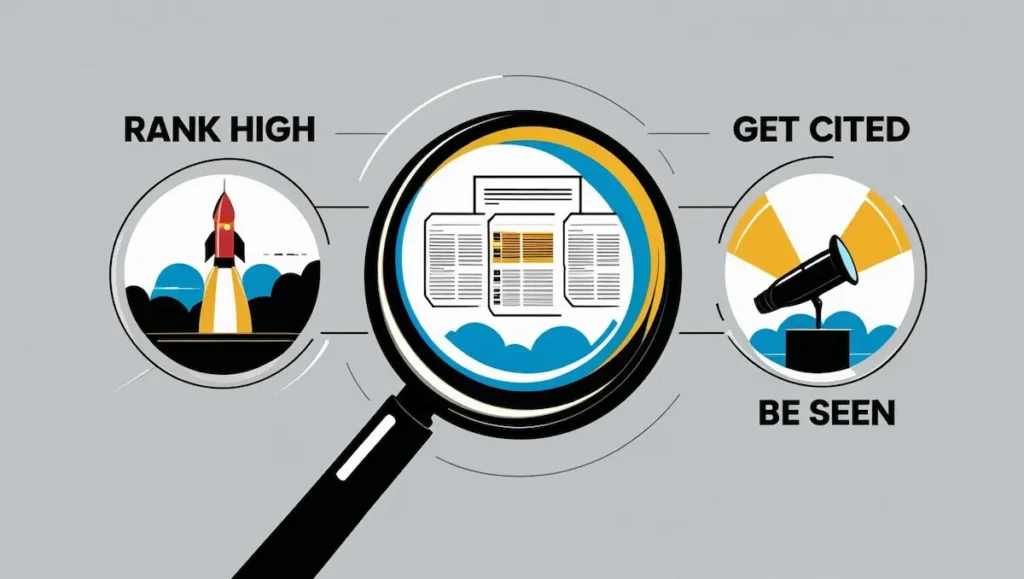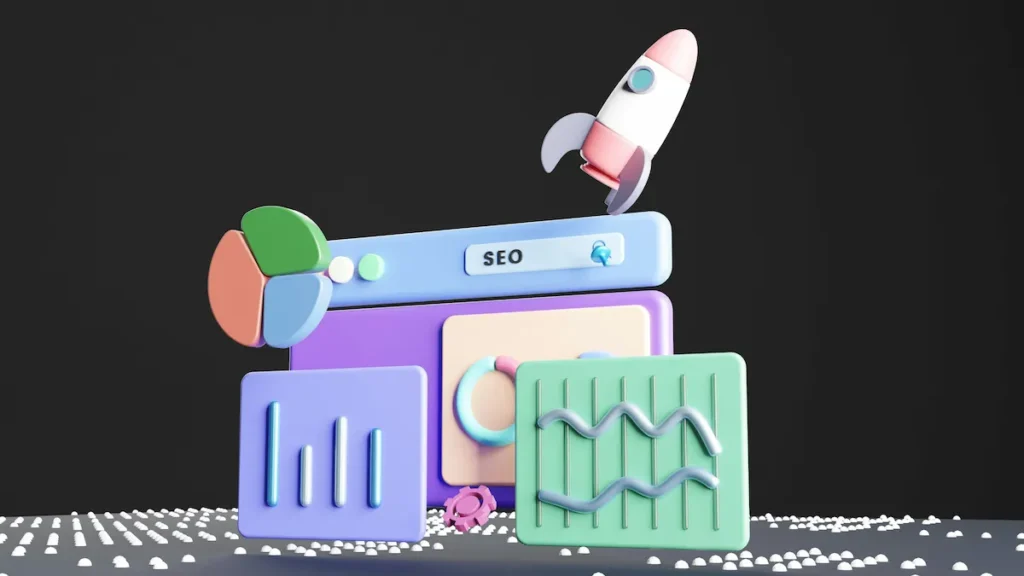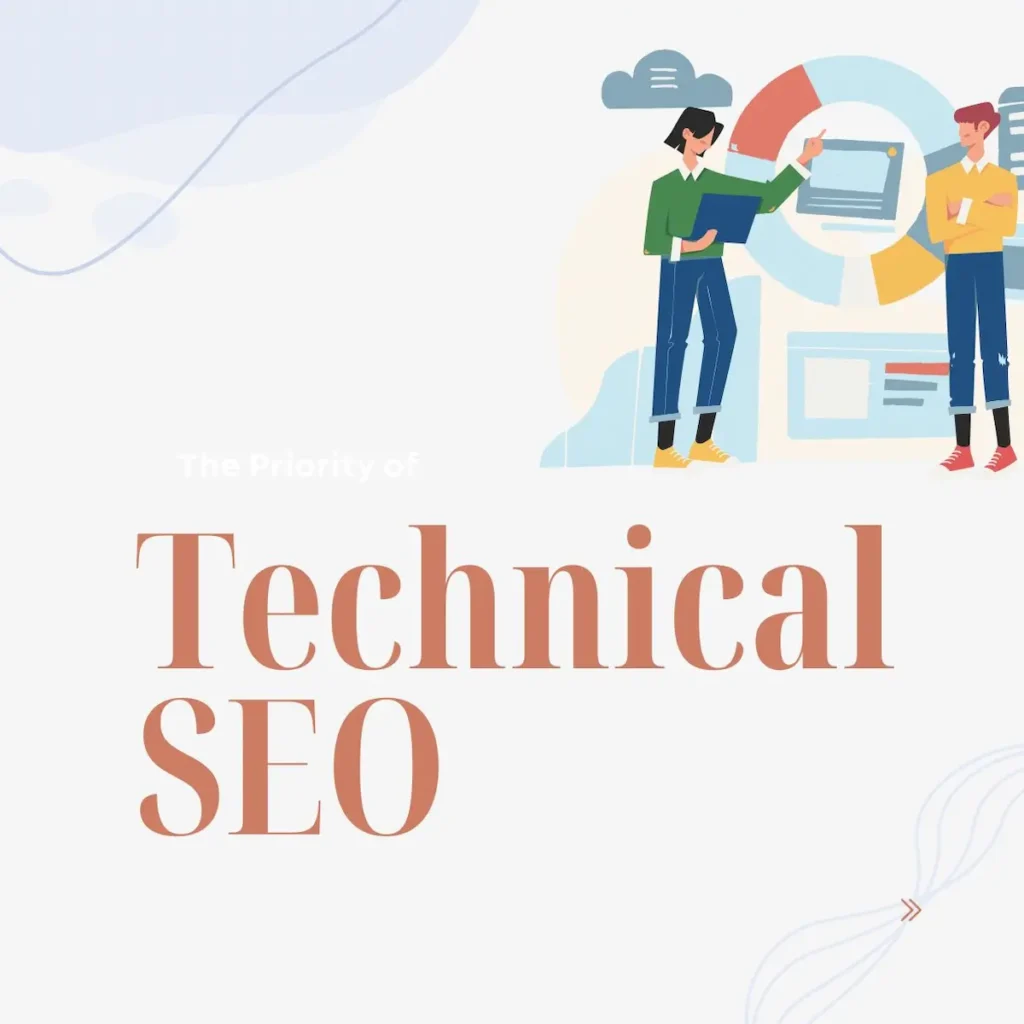What Is AI SEO? How Our Core SEO Services Drive Visibility in AI-Powered Search
Is AI replacing search? As an AI SEO agency, we hear this question all the time.
The answer is no. AI isn’t replacing search; it’s redefining it.
Tools like ChatGPT and Google’s AI Overviews aren’t just listing links; they’re summarizing and citing content that clearly answers real questions, fast.
This aligns with Google’s ultimate goal: to provide the best answer in the shortest amount of time possible.
For years, SEO was primarily focused on optimizing for keywords. But with AI in the picture, search is shifting from being keyword-centric to intent-focused.
Ranking high isn’t enough anymore. You need to be the most relevant and trustworthy source for a given intent.
Take this query for instance: “How to deal with anxiety.”
What could be the intent of the user behind such a search?
It’s not just informational. It could imply that someone is seeking a therapist, a self-help method, or an explanation of their symptoms.
AI tools are trained to interpret such nuance and surface content that speaks directly to those underlying needs.
That’s where most brands miss the mark.
Your content must now align with search intent, user pain points, and structured trust signals, not just keywords.
These are not new tactics. They are SEO fundamentals. But with AI reshaping how content is evaluated and surfaced, they matter more than ever.
In this blog, we’ll break down the core SEO services offered by our AI SEO agency that have helped brands rank high, get cited by AI search engines and grow revenues.

1. Technical SEO: We Start by Making Your Website Machine-Readable and AI-accessible
There’s no point writing great content if no one is going to read it.
Technical SEO tasks ensure that search bots can access, read, and understand your content.
There is no AI search optimization if the basics of technical SEO have not been taken care of.
When you publish any content online, search bots such as Google spiders try to access and read it. This is known as crawling.
Once the bots have understood the content of your page, they may list it on Google’s databases. This is known as indexing.
Let me use the analogy of a librarian to explain how crawling and indexing happens:
Imagine you’ve written a book on how therapy helps manage anxiety.
You walk into a massive library and hand it over to the librarian.
If your book has a clear title, a table of contents, proper chapter headings, and your name on the cover, it’s easy for the librarian to catalogue it and place it on the right shelf, under “Mental Health” or “Self-Improvement.”
That’s indexing.
But if your book is handwritten, missing a cover page, has no structure, or chapters are out of order, the librarian struggles to understand it.
They might ignore it altogether or throw it in the wrong section, never to be found
Before AI tools can trust your content, they need to read it.
Technical SEO ensures your site is structured in a way that both traditional search engines and AI crawlers can easily access, understand, and interpret.
This includes basics like:
- Fast loading speeds
- Mobile responsiveness
- Clean site architecture,
- and proper use of HTTPS
But it also means implementing structured data (schema markup), logical internal linking, canonical tags, and crawl budget optimization.
Search engines rely on this technical foundation to determine what your content is about, its trustworthiness, and whether it deserves to be indexed, ranked, or cited.
AI tools like ChatGPT and Google SGE rely on the same signals when choosing what to summarize or recommend.
If your site can’t be accessed, is slow, fragmented, or poorly structured, search engine bots won’t bother visiting you, and you will definitely not be found by your target audience.
Not sure if your site is up to par? Contact Sam the Marketing Pro, the most trusted and experienced AI SEO agency, and we will fix that for you.
NB: While invisible to users, Technical SEO is the foundation of any AI-powered search visibility. Without it, no one will ever know you exist, and you won’t be able to make sales.

2. Keyword and Entity Research: Building Semantic Relevance
Another core SEO service offered by our AI SEO agency is keyword and entity research.
Traditionally, you could just rank for a keyword and a few related ones and be good to go.
With AI search optimization, it’s all different.
AI search engines don’t just look for matching words. They examine meaning, context, and entity relationships.
This is where modern keyword research evolves into semantic SEO.
Let’s break that down.
When someone searches “how to deal with anxiety,” AI tools like ChatGPT or Google SGE don’t just look for the phrase “deal with anxiety.”
They scan for related entities like therapy, CBT, stress triggers, mental health support, journaling, or meditation.
If your content naturally and accurately incorporates these relevant concepts, it signals to AI that your page thoroughly understands the topic.
Therefore, our AI SEO agency keyword research process now includes identifying:
- Primary keywords based on search intent – What is the searcher trying to solve? Has our content offered the expected solution? If not, it means you’re unable to directly target the right audience
- Supporting entities and subtopics that AI tools expect in credible content
- Contextual variations that show topic coverage, not keyword stuffing
We use tools like Google’s NLP API, structured data sources like Wikidata, and SERP analysis to identify not just what people are searching, but how AI will interpret the relationships between terms.
For example:
If you’re targeting the topic “online therapy for anxiety,” your content should also reference:
- The type of therapy (e.g., CBT, talk therapy)
- How it works
- Benefits and concerns
- Related concepts like telehealth, mental health platforms, or therapist qualifications
AI systems are trained on massive datasets and rely on these relationships to determine whether your content is comprehensive, credible, and relevant enough to be cited.
We focus on:
- Topic clustering and keyword grouping for semantic depth
- Matching keyword research with actual user intent
- Identifying and mapping relevant entities to improve topical authority
- Writing content that connects these naturally without forcing keyword repetition
This shift from keywords to concepts is central to how AI determines authority. It’s no longer about just ranking for a query. it’s about qualifying as a trustworthy answer.
3. On-Page SEO: Structuring Content for Humans and AI
Once your content is crawled and indexed, structure is what helps it get understood and cited.
AI systems and search engines don’t just look at what you say. They analyze how you organize it.
Clear headings, logical subtopics, bullet points, and structured sections enable machines to extract meaning quickly and accurately.
For example, if you’re writing about “how therapy helps with anxiety,” your content should follow a clear structure like:
- Introduction to the issue
- How therapy addresses root causes
- Types of therapy used
- Real-world outcomes or evidence
- How to get started
Using this kind of structured format makes it easier for AI tools to summarize your content accurately or quote your page as a reliable source.
Our AI SEO agency optimize every page with:
- Clear H1-H3 heading hierarchy to signal topic flow
- Short, scannable paragraphs that improve readability
- Bullet points and numbered lists for process-based content
- Schema markup to enhance visibility in search features like FAQs, how-tos, or product listings
- Consistent internal linking to reinforce topic relationships and improve crawl paths
Good on-page SEO is not just about ranking. It’s about making your content usable, citable, and trusted in an environment where AI curates answers on your behalf.
In other words, well-structured content is what makes your expertise accessible to both humans and machines.
Contact Sam The Marketing Pro, a trusted AI SEO agency, and we will help audit your site and quickly fix any issues we find.

4. Content SEO: Building Authority, Trust, and Citability
With AI, anyone can publish content. Therefore, it’s no longer about who publishes the most. it’s about who publishes the most useful and credible content.
AI tools like ChatGPT, Google SGE, and Perplexity are designed to reference content that reflects E-E-A-T: experience, expertise, authoritativeness, and trust.
These are the signals that help AI decide what to summarize, what to quote, and what to ignore.
If your blog post on “therapy for anxiety,” for instance, is vague, unstructured, or lacks real insight, it won’t make the cut, even if it’s ranking on Google.
Here’s what we focus on to make your content AI-citable:
- Originality and Depth
We go beyond rewriting what’s already ranking.
Your content should offer something distinct, whether that’s a new angle, firsthand knowledge, or a simplified explanation of a complex topic.
Example: Instead of repeating general tips like “exercise more,” a blog about anxiety management could share a detailed, step-by-step CBT technique, along with real-world use cases.
- Demonstrated Experience
Search engines and AI tools tend to prefer content written by individuals with actual experience in the topic.
We help you highlight this through stories, examples, editorials or case studies.
Example: A wellness coach writing about meditation should reference how they’ve used it in client sessions, including outcomes or lessons learned.
Even a simple line like, “As someone who’s worked with clients dealing with high-functioning anxiety…” can add credibility.
- Fact-Checking and References
Citing reliable sources reinforces your content’s trustworthiness.
We reference academic research, medical journals, government data, or reputable news sources, depending on the topic.
Example: If your blog claims “CBT is effective for anxiety,” we link to clinical research or authoritative health websites (like NIH or Mayo Clinic), not random blogs.
AI tools scan for outbound credibility signals. If you cite weak or self-serving sources, your trust score will drop.
- Author Transparency and Credentials
We include proper author bios and context.
Who wrote the piece? Why are they qualified to talk about this? Do they have professional or lived experience?
Example: if you’re a therapist and have written a blog on hypnotherapy for anxiety, for instance, we ensure the author bio mentions license, clinical background, or speaking engagements.
We also use structured data (e.g., author, reviewed by) to make this information machine-readable.
- Topical Consistency and Depth
One-off content won’t cut it.
AI and search engines reward sites that build topical authority, a consistent, comprehensive content footprint around your niche.
Example: A wellness brand that covers anxiety, therapy, stress management, and meditation in-depth (rather than scattered posts across unrelated topics) is far more likely to be cited.
We plan your content as a topic cluster, ensuring your main topics are fully explored and interlinked for semantic strength.
Content SEO in the AI era is not about writing more. It’s about writing what matters, why it matters, and why you’re the right source to talk about it.
5. Local SEO and Trust Signals: Winning Proximity and Credibility
Even as AI transforms search, local SEO remains critical, especially for service providers, coaches, clinics, and physical businesses.
Google’s AI Overviews and tools like ChatGPT still prioritize location relevance when a query suggests local intent.
If someone searches “best therapist for anxiety near me,” for instance, AI won’t just pull generic blogs.
It looks for verified businesses, credible service pages, and trust signals tied to location and identity.
Here’s what our AI SEO agency optimize to ensure you’re not just found but trusted:
- Google Business Profile Optimization
We ensure your business profile is accurate, keyword-aligned, and frequently updated.
This includes services, categories, hours, and high-quality photos.
Example: A therapy practice should list specific services, such as anxiety management, stress management, or CBT, under their offerings, not just “counseling.”
- Consistent NAP (Name, Address, Phone) Across Web
AI and search engines verify your business across directories.
Any inconsistency weakens trust.
We audit and correct your listings across Google, Yelp, Bing, Apple Maps, and local directories.
- Location Pages With Real SEO Value
Generic location pages don’t perform.
We create city or service-area pages with real content, including FAQs, client stories, and maps.
Example: “Anxiety Therapy in Nairobi – What to Expect, Pricing, and How to Book” performs better than a thin “Therapy Nairobi” page.
- Trust Signals and Reviews
We build credibility by encouraging high-quality reviews and embedding them with structured data. AI uses public reviews and star ratings to assess trust.
We also incorporate client results and testimonials into service pages for both human and machine readers.
- About Pages and Team Bios With Schema
People want to know who they’re working with. AI wants to know too.
We optimize your About page to include relevant expertise, locations served, and schema markup to help machines identify your credibility.
Search is still local. AI is just more precise about who it trusts. Our AI SEO agency makes sure your business sends all the right trust signals, in all the right places.

How These SEO Fundamentals Work Together to Improve AI Search Visibility
SEO is not a checklist. It’s a system.
Each component: technical SEO, keyword and entity research, on-page optimization, content depth, and local signals, works together to make your content discoverable, understandable, and trustworthy to AI-powered search engines.
When these fundamentals are aligned, here’s what happens:
- Crawlers can access and index your content properly
- AI tools can extract accurate meaning and assess credibility
- Your content answers intent-driven questions clearly and reliably
- Search engines can match your expertise to relevant, high-value queries
Let’s take an example:
You run a wellness brand that offers therapy services. You publish a well-structured blog titled “How Online Therapy Helps With Anxiety,” supported by:
- Schema markup for articles and authorship
- References to CBT, stress triggers, and meditation
- Internal links to service pages and related guides
- Testimonials from clients and therapist credentials
- Optimized load speed and mobile usability
- Location-specific service pages for where you operate
When someone types “Does online therapy work for anxiety?” into Google, Perplexity, or ChatGPT, your content has the technical and contextual clarity to be surfaced, summarized, or cited.
That’s not magic. That’s well-executed SEO for the AI age. And that is exactly what our AI SEO agency does for brands like yours!
Conclusion: Get Ranked, Cited & Watch Your Sales Grow
While AI is changing how people discover answers, the fundamentals of visibility remain the same.
You still need a technically sound website, content built on expertise, and clear signals of trust.
The difference is that now, your content must be structured and credible enough for machines to cite you, not just rank you.
If you’re ready to future-proof your SEO strategy, contact our AI SEO agency and let’s talk.



